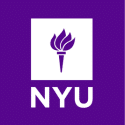Organization
New York University (NYU) is a private nonprofit research university based in New York City. Founded in 1831, NYU counts 37 Nobel Laureates, over 30 Pulitzer Prize winners, over 30 Academy Award winners, and hundreds of members of the National Academies of Sciences in its faculty and alumni.
Most University-wide policies and proposed changes are discussed and decided by the University Senate, which is composed of 137 voting members representing six different campus segments: deans and vice chancellors, tenured faculty, full contract faculty, the student body, senior staff, and the Administrative Management Council (representing more than 4,000 administrators University-wide).
Challenge
The Administrative Management Council (AMC) at NYU aimed to identify and implement innovative ideas, address issues proactively, and foster a culture of collaboration between leadership, faculty, and staff. The AMC executive committee knew their members had bright ideas ripe to shape the prestigious university’s future, but were aware of a multitude of problems preventing them from collaborating at scale.
For starters, collecting actual feedback from individuals in a group of over 4,000 was next to impossible because of room capacity limitations. “We had a lot of good ideas out there, there were also problems we weren’t necessarily addressing, simply because we didn’t have an infrastructure that supported that community engagement and sharing,” Previous AMC Chairperson and Assistant Vice Provost Michael McCaw stated. When sharing ideas online instead, a lack of formal processes for contributing, reviewing, and implementing created a chaotic environment where bright ideas were bound to be lost.
Additionally, The AMC elective committee was focused on empowering employees to participate in feedback and idea sharing, regardless of whether they were elected representatives, their seniority level, or even their comfortability with public speaking. Many contributors weren’t comfortable speaking in front of a crowd, but expressed they’d share feedback in a virtual setting.
Solution
The Administrative Management Council at NYU implemented IdeaScale, a crowdsourcing and idea management platform. Although the AMC had worked with other knowledge-sharing platforms to share and build ideas before, they came to IdeaScale because they wanted the purpose-built crowdsourcing functionality that allowed them to easily collect ideas, votes, and other transparent data publicly (or anonymously) while still customizing the site to their brand guidelines. They called their community Open AMC.
Michael McCaw says of their choice to switch to IdeaScale, “We haven’t looked back since because it really is doing what we had envisioned in terms of this idea concept. It’s like, how do we make this organization more open to feedback, thoughts, and participation? So we tried different tools for it, but it finally found its home at IdeaScale.”
Results
Those ideas shaped the future agendas and projects for AMC as a whole. Results from OpenAMC so far include:
- Exploring new policies and programs and improving long-standing ones:
- The exploration of a new program to donate sick leave to University staff in need of PTO. The idea began as a sick time buy-back process improvement but turned into a community benefit idea and others shared information and best practices from institutions with similar programs.
- The exploration of a revised tuition remission policy.
- Capturing diverse viewpoints from faculty, staff, and students on the potential impact of different proposals for a new academic calendar.
- Creating new task forces and committees:
- Facilitating the formation of an anti-racism task force. Staff used the platform to share their experiences with racial bias and propose concrete actions to address these issues.
- A new committee around research data and evaluation best practices.
- Increased participation:
- Since launching OpenAMC, the Administrative Management Council has noticed a marked increase in Council meeting attendance (doubling participation from about 100 attendees to 200).
- Bridging gaps:
- Creating a new award that recognizes administrators and staff for exemplary work inspired by Dr. Martin Luther King Jr. and advancing his efforts. This complements the pre-existing award for faculty and students.
- Gathered invaluable input during the presidential search. Open AMC allowed other councils to contribute, enabling the university community to voice their priorities and expectations for the new president, leading to a more inclusive and informed search process.
- The platform’s success led to its expansion as a real-time communication tool. Leadership now uses it as a “pulse check,” to gain insights into employee satisfaction and feelings around campus.
Open AMC’s Best Practices and Roadmap to Success:
To create buzz and drive engagement with its launch, Open AMC organized an integrated marketing campaign including:
- Launching it publicly alongside a highly-anticipated diversity and inclusion initiative.
- Sending out a launch email that highlights the top idea at the time, which quickly garnered more support and discussion as people signed on to weigh in on the issue.
- Participating in a live event and inviting members to sign into the OpenAMC community and weigh in on ideas or submit their own in exchange for AMC-branded “swag” like water bottles, umbrellas, etc.
- Including a link to the community in AMC Leadership email signature lines.
- Finally, all admins are continuously reminded to participate during monthly assembly meetings in which ideas and their progress are reported.
In the years following Open AMC’s strategic launch, the community has continued to drive participation and build credibility– in doing so, they’ve created a roadmap to success. When participating, Open AMC contributors see the lifecycle of an idea, from submission to the platform to evaluation to how leadership responds and reacts to it. Because of the transparent and continuous communication from leadership on the structure of the process, contributors clearly know the steps when posting their ideas. More importantly, they know that their ideas matter and will be acted upon.
OpenAMC has empowered the administrator community at NYU to have a more proactive voice in the University and will continue to find new opportunities to improve processes and offerings in the future.


